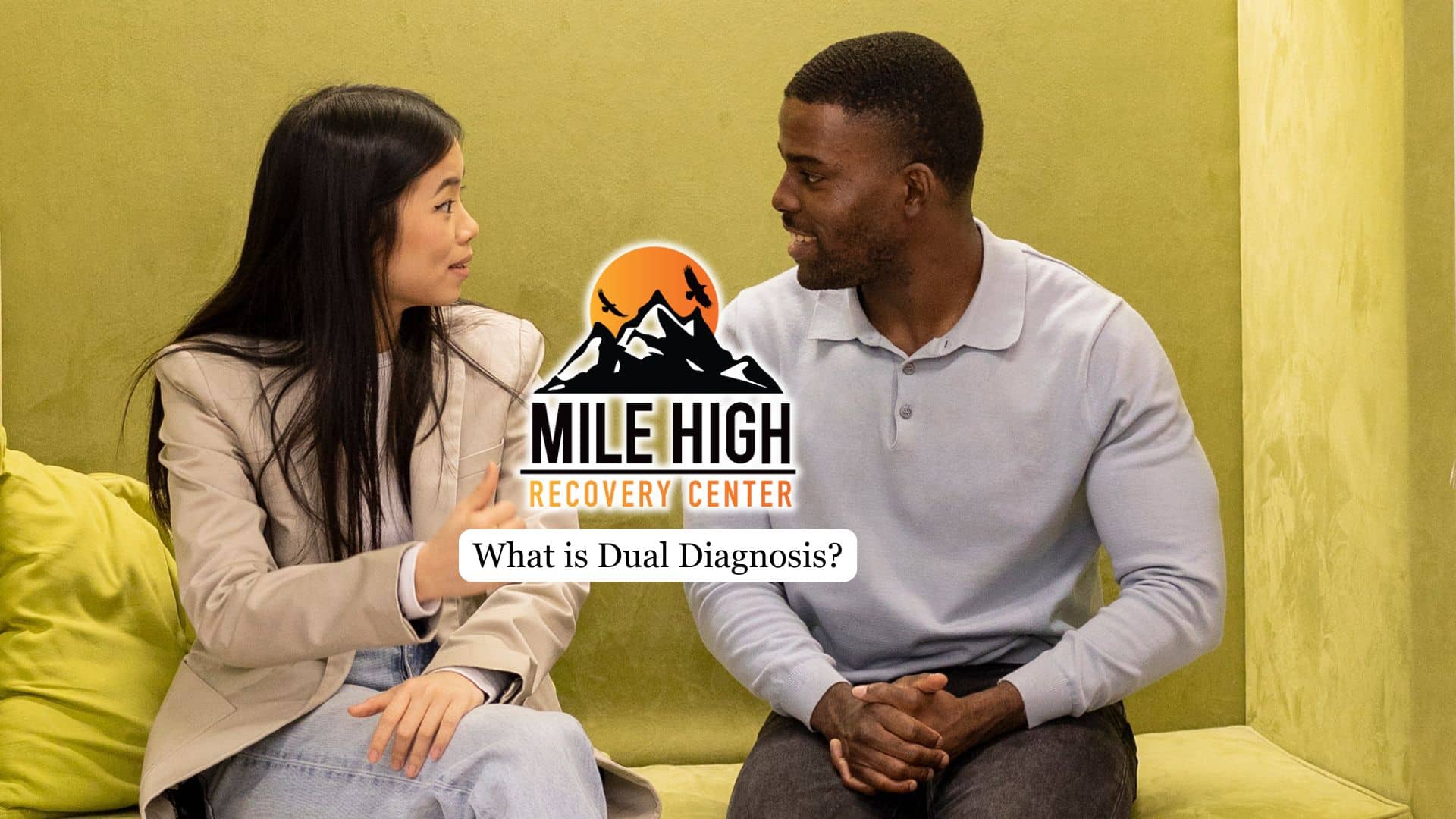Dual diagnosis is a term that may crop up when dealing with mental health issues. Also called co-occurring disorder, this refers to a mental illness and a substance use disorder, or two or more disorders, that occur at the same time.
Understanding the factors that contribute to this duality of mental disorder and drug and alcohol misuse, and identifying signs and symptoms to create a treatment regimen for co-occurring conditions are essential steps in addressing dual diagnosis.
Understanding dual diagnosis
A co-occurring mental health disorder and a substance use disorder can complicate your situation, as addiction can mask symptoms and make the identification of symptoms and treatment of dual diagnosis of mental health conditions and substance use disorders worse. Common mental health disorders include depression and anxiety, while substance use disorders may involve alcohol and drug use.
Dual diagnosis complicates treatment because each condition can influence the other, making it essential to understand the nuances involved. To effectively tackle these challenges and avoid steps that may worsen the symptoms of dual diagnosis of serious mental illness and substance use, specialized treatment for both conditions is required.
This is where integrated care comes in. Instead of treating mental health and addiction as separate issues, a combined approach brings both into focus at the same time. This method ensures that one condition isn’t ignored while treating the other. This is a common mistake that can lead to relapse or worsening symptoms.
Early intervention is critical to achieving lasting recovery. The earlier individuals recognize the signs of co-occurring disorders and seek appropriate care, the greater the likelihood of successful long-term outcomes.
With Mile High Recovery’s dual diagnosis treatment in Denver, you can receive a personalized plan that supports your mental and emotional well-being while helping you overcome substance use.
Causes and risk factors
Understanding the causes and risk factors behind dual diagnosis can shed light on how these disorders develop and intertwine. Various factors contribute to co-occurring disorders, including genetic factors that might make you more susceptible to both a mental health disorder and drug abuse.
Environmental factors, such as your upbringing and social environment, can play a crucial role as well. Psychological contributors, including pre-existing trauma or stress, often make people with a mental health or substance use issue turn to drugs or alcohol, which will worsen the symptoms of mental illness.
For instance, a traumatic experience may lead you to self-medicate with drugs or alcohol, resulting in a cycle that complicates recovery during your treatment for substance use.

Treating Dual Diagnosis
Treating dual diagnosis disorders requires a comprehensive treatment program that takes both mental health and substance use disorders into account.
At a dual diagnosis treatment center, you’ll work with a mental health professional to create the best treatment program that targets both co-occurring disorders. Treatment may involve a combination of medication, therapy and may involve residential treatment which often includes group therapy or cognitive behavioral therapy, designed to tackle the symptoms of mental health disorders and substance abuse effectively.
Integrated treatment models are essential for successful outcomes, as they ensure that the treatment strategy aligns with the combination of disorders. Additionally, relapse prevention strategies for alcohol or drug use will be implemented to help you navigate challenges in recovery from issues like alcohol addiction and its co-occurring substance abuse.
Understanding genetic contributors to your conditions can also guide your recovery. An emphasis on relapse prevention is vital, as treatment for a mental health disorder and substance use disorder will give you a stronger foundation for a healthier future.
Here you can find the most common co-occurring disorders.
Recovery and Prognosis
Recovery from dual diagnosis substance addiction and mental illness may, and can, be a challenging journey, but it’s essential to understand that with the right support and strategies, you can achieve lasting wellness.
Ongoing support is crucial, as it helps you manage both your mental health issues and addiction effectively. An effective treatment plan that takes comprehensive screening to address your specific needs and tailors interventions accordingly will help you avoid experiencing a mental illness or substance use relapse in the future.
Prioritizing relapse prevention strategies will enhance your chances of maintaining recovery. Utilize health services such as therapy, support groups, and medication management for a holistic approach.
Achieving Lasting Wellness with Integrated Dual Diagnosis Care
Achieving lasting wellness from dual diagnosis of substance abuse and mental illness also involves a commitment to ongoing support and effective strategies.
You face unique challenges when dealing with a mental health problem and a substance use disorder simultaneously. Disorders that commonly occur with dual diagnosis, like bipolar disorder, can complicate recovery, making withdrawal symptoms more intense and treatment approaches more complex.
That’s why comprehensive screening and integrated care, including dual diagnosis and proper medical and mental health care, are vital. Address both your mental health and addiction through treatment for substance abuse, therapy, medication, and support groups to enhance your chances of success.
Final Thoughts From Mile High Recovery
At Mile High Recovery, we specialize in integrated, individualized treatment plans that address the full picture of dual diagnosis. You’ll receive medical and mental health treatment and support that addresses underlying mental health conditions that co-occur with substance use disorder, and help you on your path to recovery.









